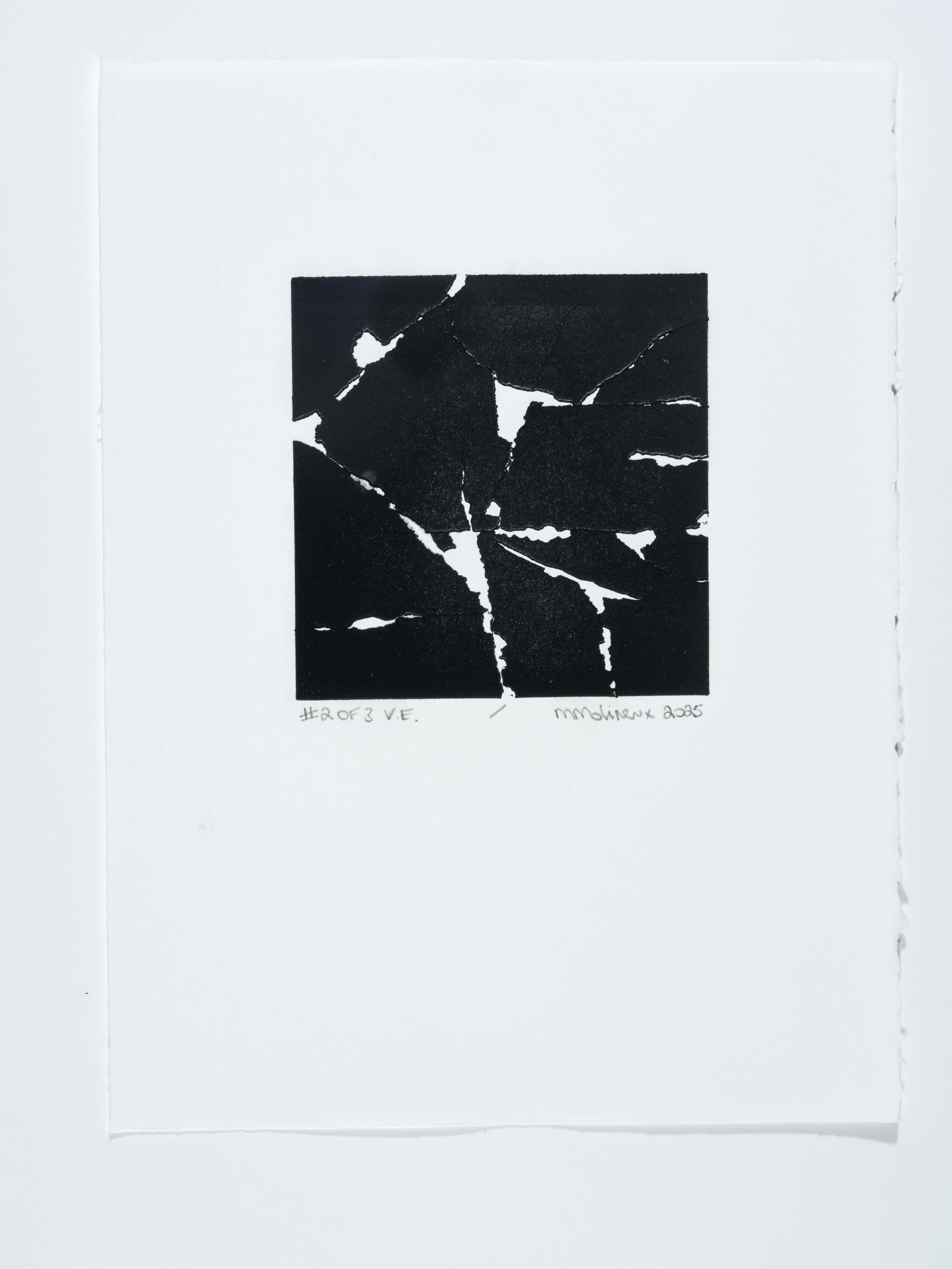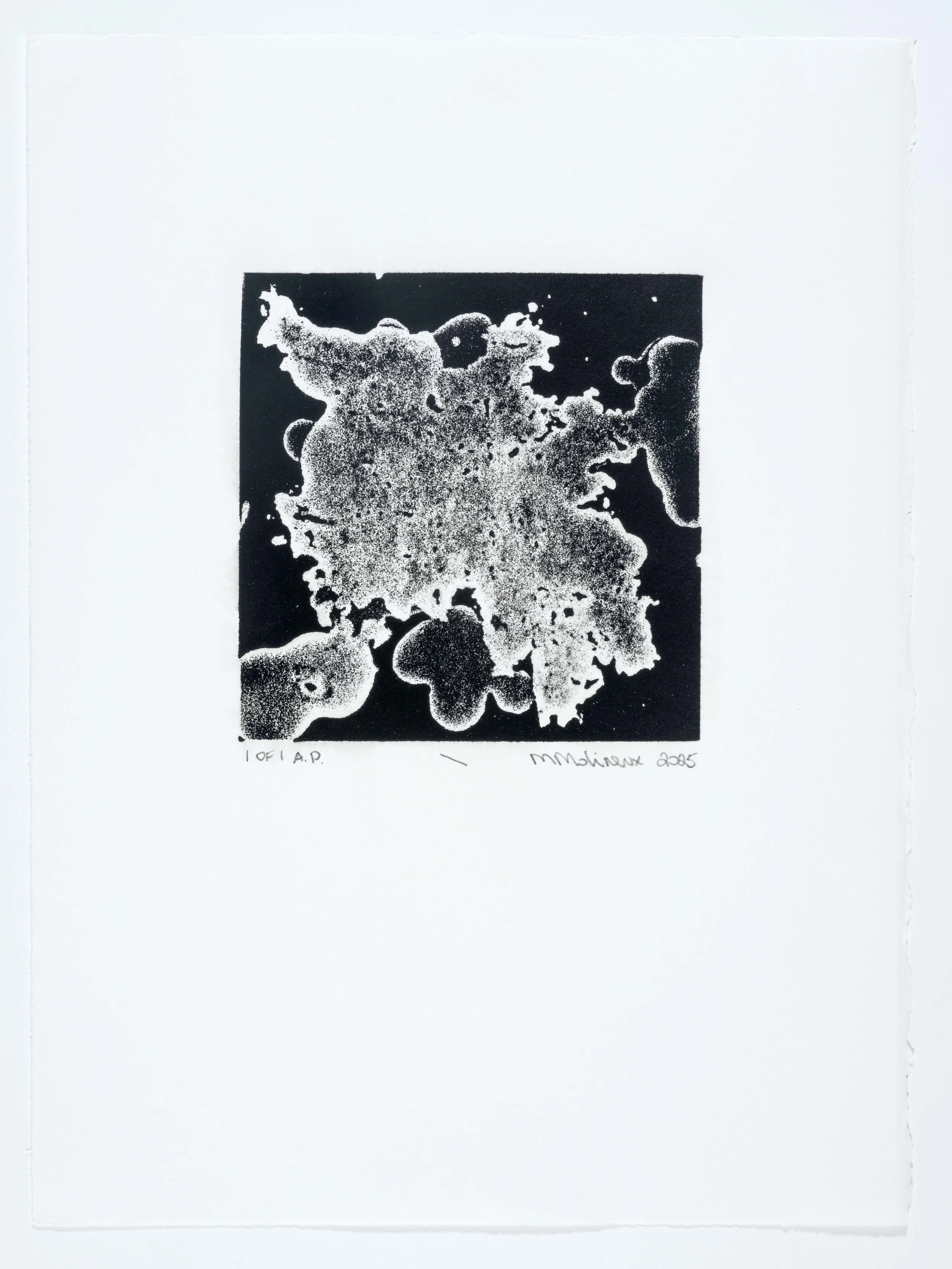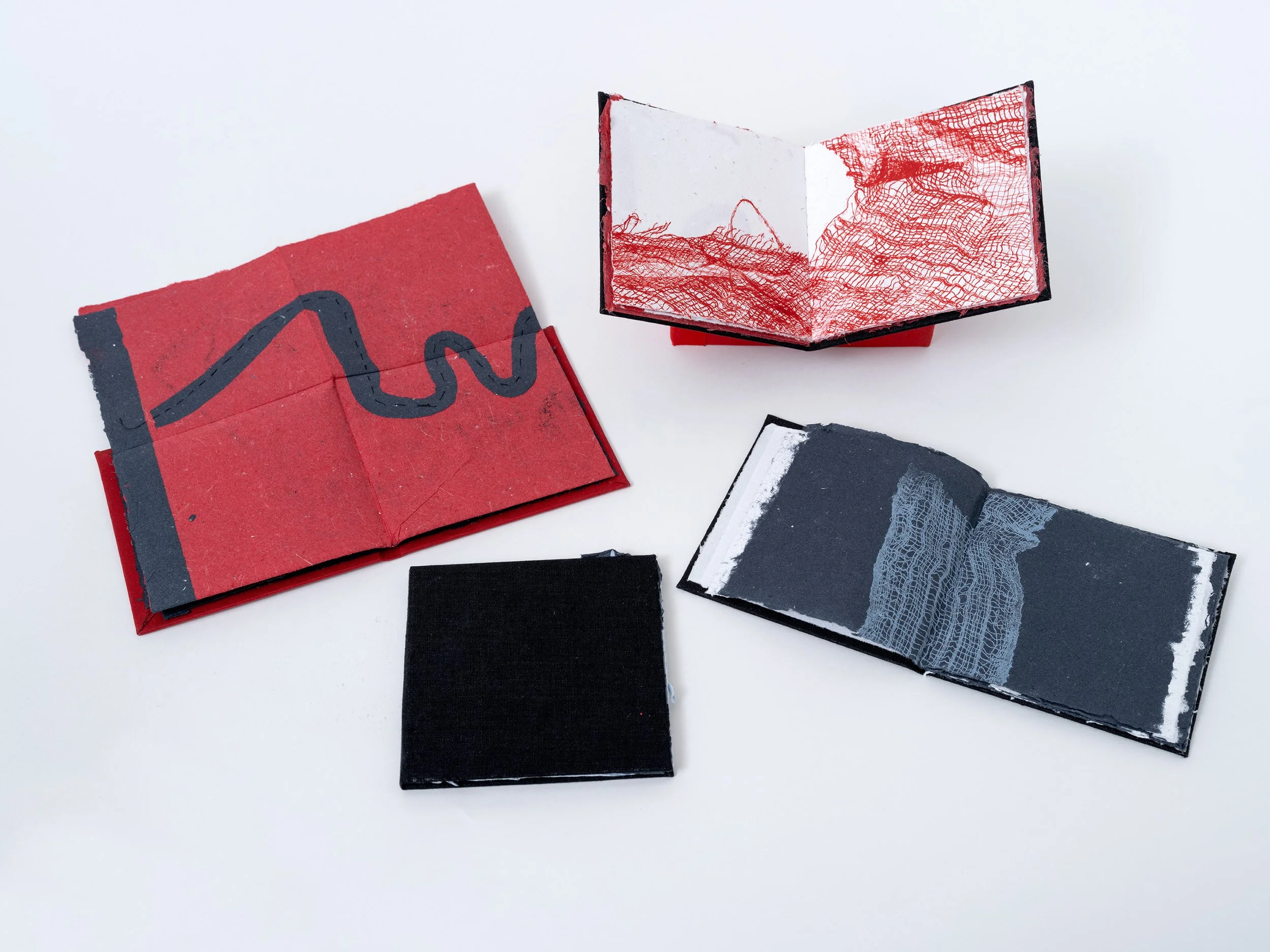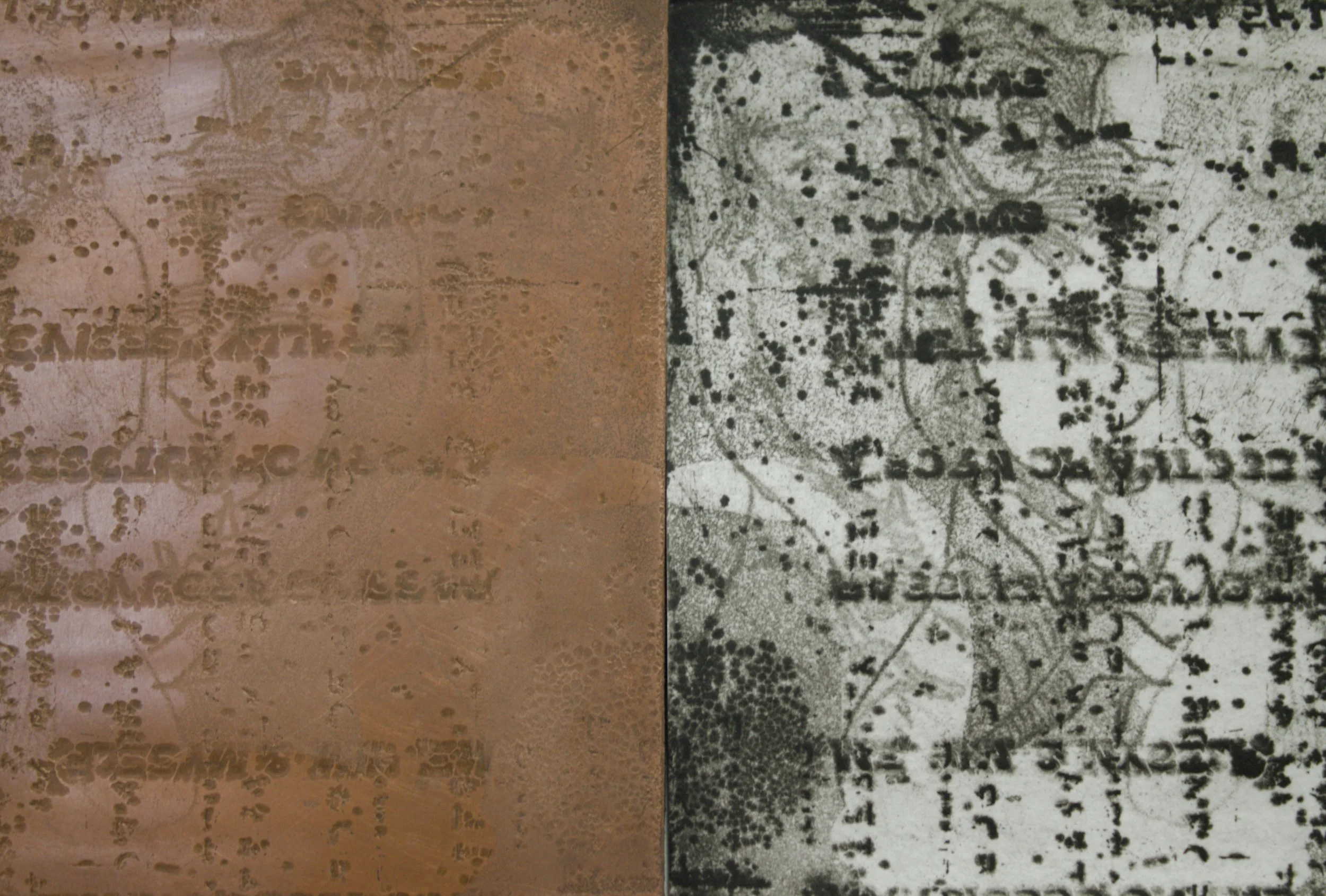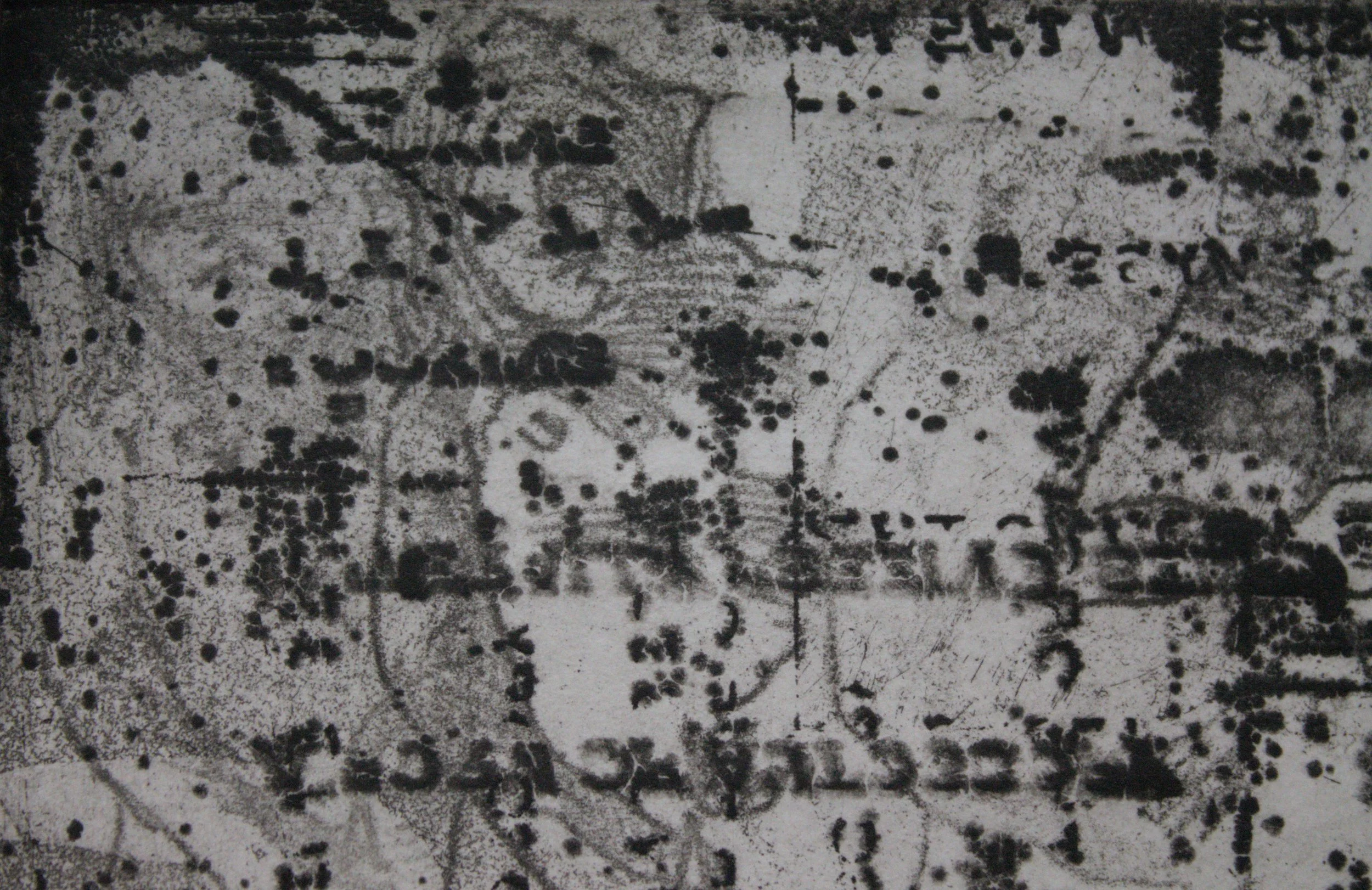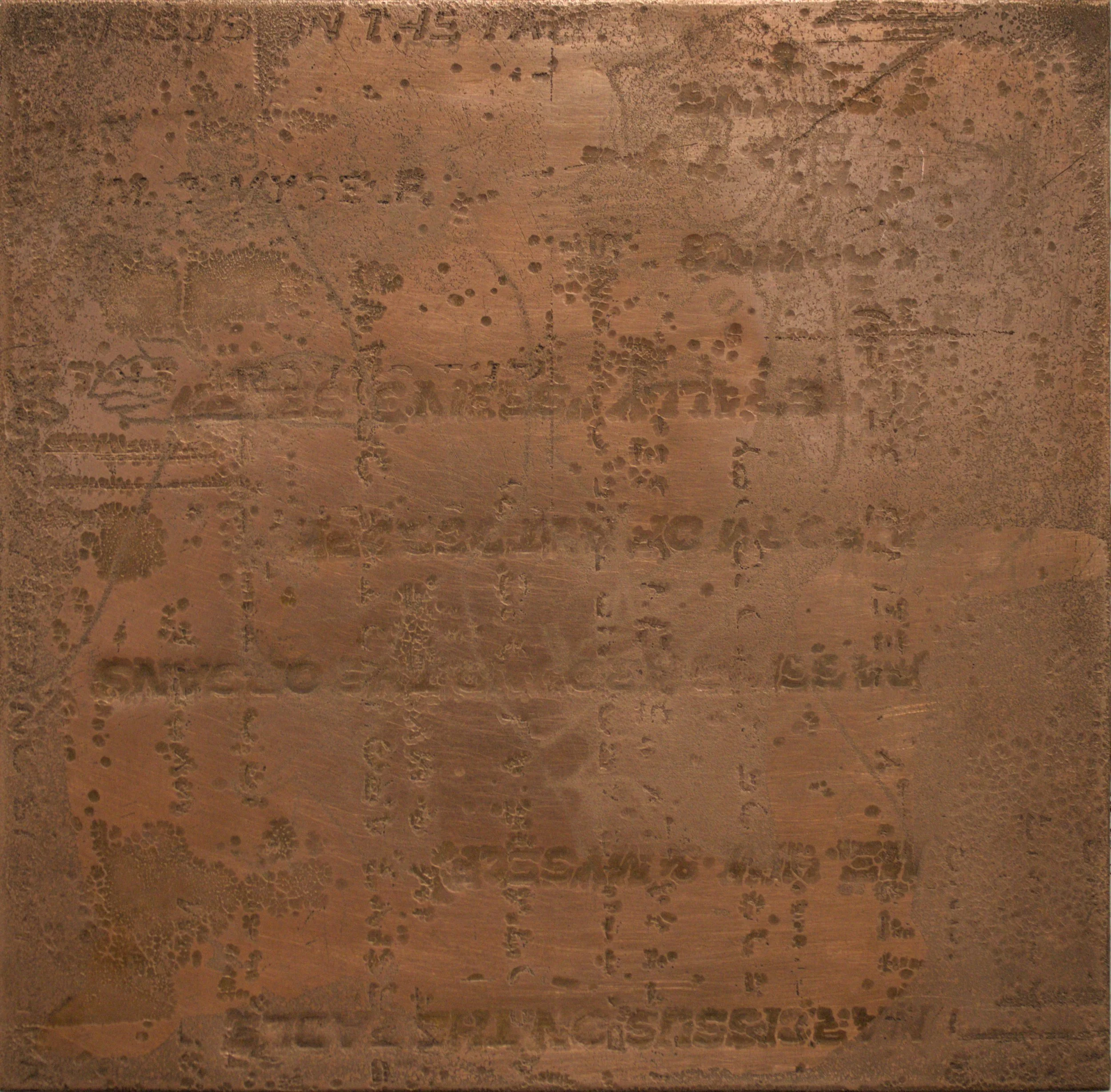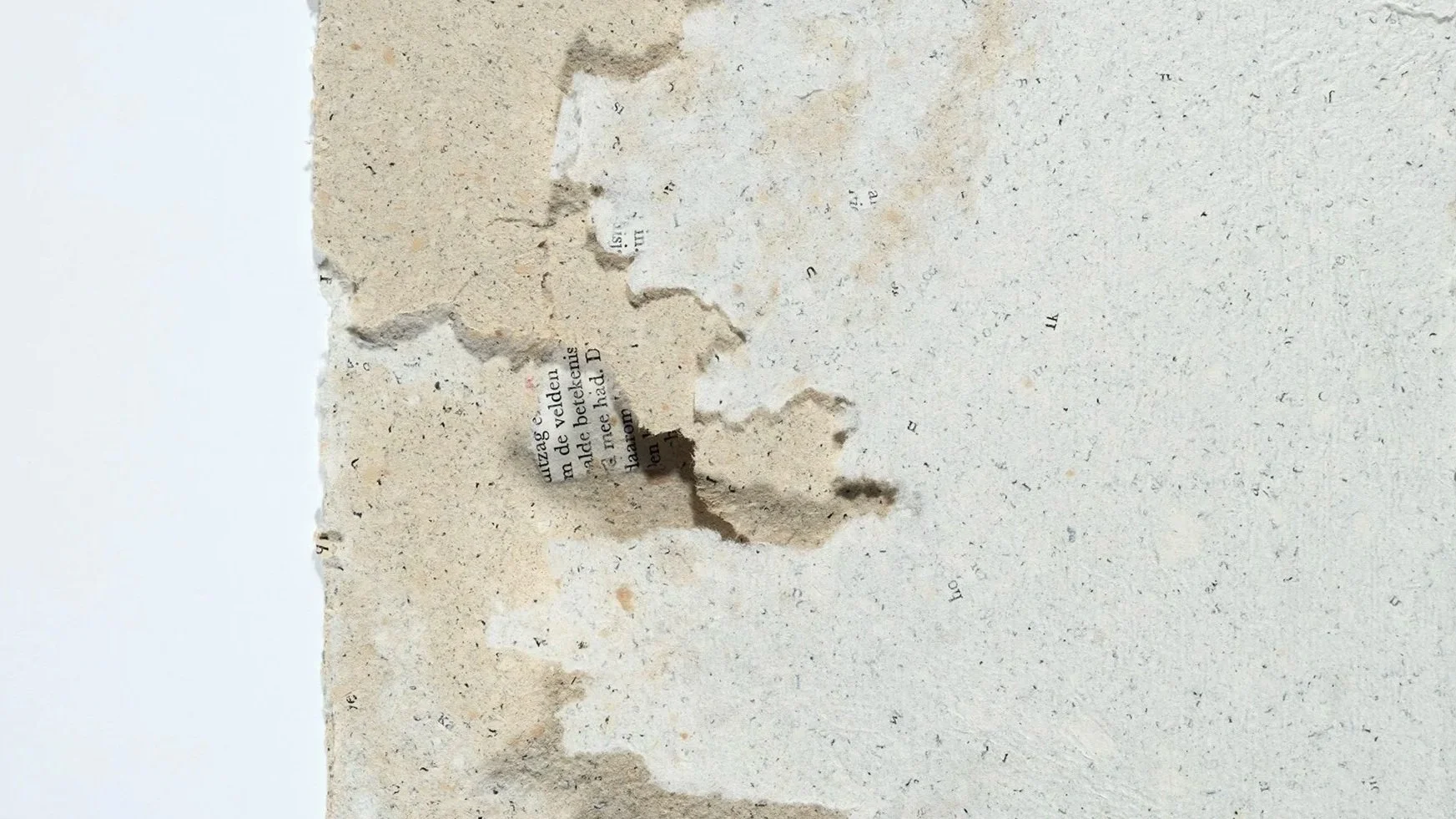Dhamu (2025) confronts colonial histories of displacement, environmental destruction and the erasure of First Nations food systems. Cotton, an introduced monocultural crop on Gamilaroi Country, is tied to Eurocentric agricultural practices, restricted access to resources and the loss of native bush foods and grasslands. In this work, cotton is pulped and reformed into handmade paper embedded with dhamu (purslane) seeds. Arranged to spell their Gamilaraay name, the seeds germinate through the surface, inscribing language by means of growth and asserting themselves as more than an invasive weed. A laser cut image of a hoe marks the acrylic, symbolising agricultural violence and the role of the cotton industry in the exploitation of First Nations labour. The paper, born of colonial industry, becomes fertile ground for cultural regeneration, reclaiming native foods and affirming resilience, knowledge and connection to Country.
The work is grounded in the artist’s family history. The artist’s grandfather and his siblings worked as cotton chippers, tasked with removing weeds using a hoe, unknowingly cutting out the very native bush foods their Gamilaroi ancestors had traditionally used for breadmaking. Within the context of this exhibition, Dhamu looks back to the 2019 QCAD folio box Syntax, which featured an Acknowledgment of Country screen printed on handmade paper formed with mud from Yuggara Country by Tim Mosely, with permission from Auntie Kerry. In dialogue with this legacy, Dhamu reimagines the folio box as a living archive of native, growing bush foods, activating it through Gamilaraay language and seed. The work looks back to the impacts of colonial agriculture while looking forward to renewed practices of care, recognition and sustenance on Country.


